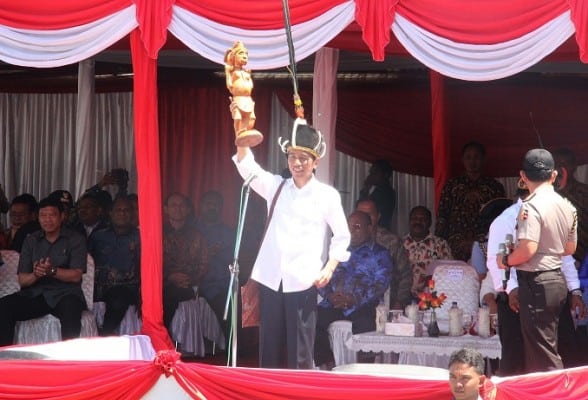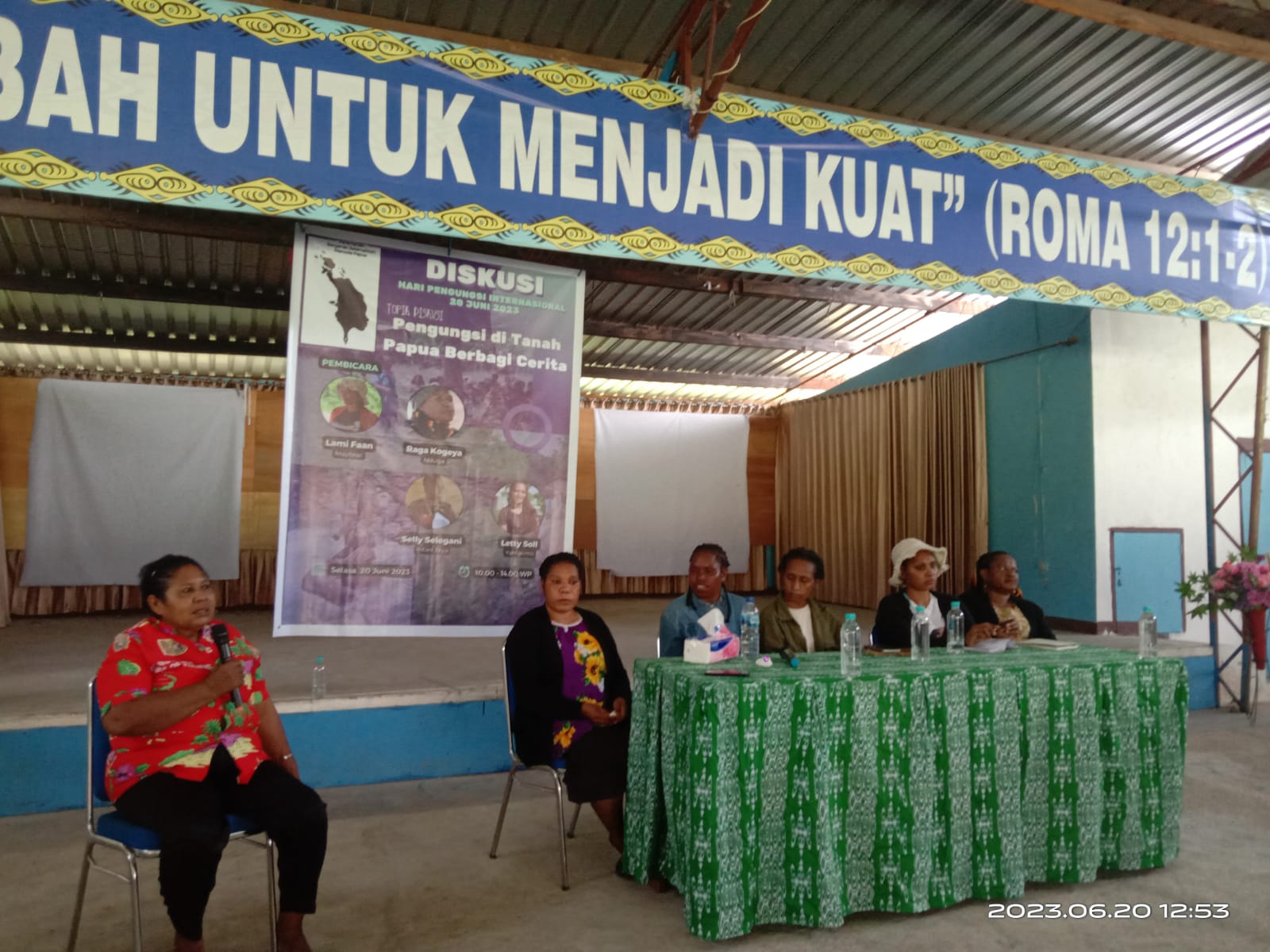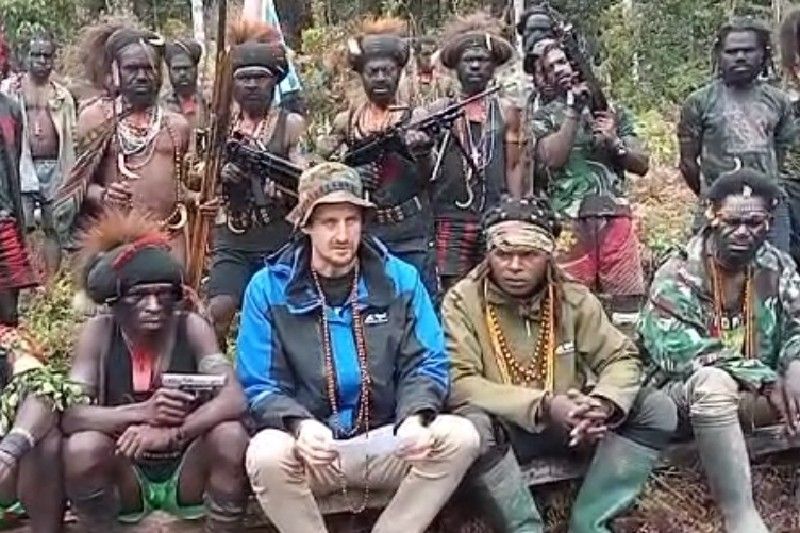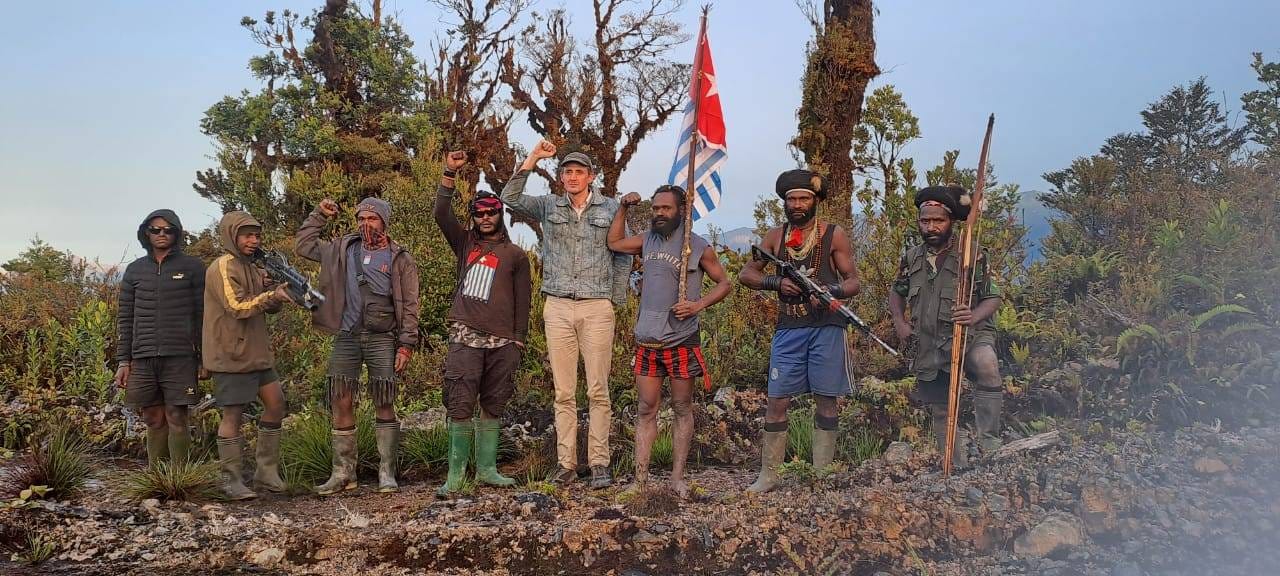
Jayapura, Jubi – Two days before May 3 of World Press Freedom Day, violence was again experienced by Yance Wenda, a journalist at tabloidjubi.com and Koran Jubi in Papua. Earlier on April 28, 2017 three television journalists from Metro TV, Jaya TV and TVRI also got intimidation and death threats while covering the violation of election criminal trial of Tolikara District Court in Wamena District Court.
Yance was beaten by the police on Monday May 1 in Sentani, Jayapura District, while covering the arrest of West Papua National Committee (KNPB) activists who plan to commemorate May 1, which they called a day the annexation of Papua by Indonesia.
Two cases of violence within a week confirmed that legal protection for journalists, as regulated by Law No. 40 of 1999 on Press is a rare thing in Papua.
Violence against journalists in Papua continues, confirming the poor press freedom in this region, fulfilled the censorship practice by blocking a number of Papuan news sites that are critical of the central government’s policy on the issue of Papua.
The Alliance of Independent Journalists (AJI) of Jayapura City noted that from 2015 to early 2016, only 15 foreign journalists were allowed to get into Papua. Tabloidjubi.com wrote, Radio New Zealand International journalist Johnny Blades claimed it took three months to get an entry visa to Papua.
“Despite having a visa coverage in Papua, Blades was rejected by the police and TNI when they were about to confirm some of the coverage they got. France Radio journalist Marie Dumieres is also looked by the police for coverage in Papua, ” said the newspaper’s chief executive Jubi and tabloidjubi.com, Victor Mambor.
March this year Franck Jean Pierre Escudie and Basille Marie Longchamp were deported. Not long ago, Al Jazeera writer Jack Hewson, when he was about to leave Indonesia, was told he would not be able to enter the country. Whereas, Hewson said he was currently in the process of filing a request for permission coverage in Papua.
Statement by the President of Indonesia Joko Widodo that Papua is open to foreign journalists’ coverage far from the fire.
72 cases of violence
Papua is clearly one of the worst areas in enforcing the Press Law, as well as guaranteeing legal protection for journalists. However, in other parts of Indonesia, violence against journalists also continues to occur.
Based on data collected by AJI Indonesia, during May 2016 until April 2017 there have been 72 cases of violence experienced by journalists who run their profession. The case of violence was even dominated by a form of physical violence, which reached 38 cases. Expulsion and/or prohibition of coverage is also rife, with the findings of 14 cases.
The data compiled by AJI Indonesia also shows how serious is the violence. Among the 72 cases, nine violent cases were deliberately committed to rob or destroy data, photos, video recordings obtained by journalists in the field. In addition, there are two cases of criminalization.
AJI Indonesia also noted that there are still serious threats and terror to journalists (seven cases). In addition, there were two cases of verbal intimidation, including intimidation by a chairman of the regional parliament.
Of the 72 cases of violence that occurred during May 2016 until April 2017, a total of 21 cases of which were conducted by civilian residents. Other actors include cadres of political parties / politicians / and members of parliament (seven cases), Civil Service Police Unit and other local government apparatus (six cases), government officials policy makers (four cases), even legal professions such as advocates (one case) , A judge (one case) became a perpetrator of violence against journalists.
AJI Indonesia’s demands
In its demands AJI Indonesia declares the police to be the main enemy of press freedom in Indonesia in 2017, with its personnel continuing to engage in various cases of violence, and continue to practice impunity that makes perpetrators of violence against journalists free from legal liability.
They requested that the legal protection of the profession of journalists be enforced as regulated by Law No. 40/1999 on the Press throughout Indonesia, especially in Papua. By stopping the practice of violence, intimidation, restriction and prohibition of coverage, as well as censorship such as blocking a number of news sites in Papua;
They also demanded that access to foreign journalists ‘coverage in Papua be opened, ensuring that every foreign journalist is given the freedom to cover objectively the various dimensions of life in Papua, so that the international community gets a complete picture of the Papuans’ political, economic, and socio-cultural situation.(*)
















